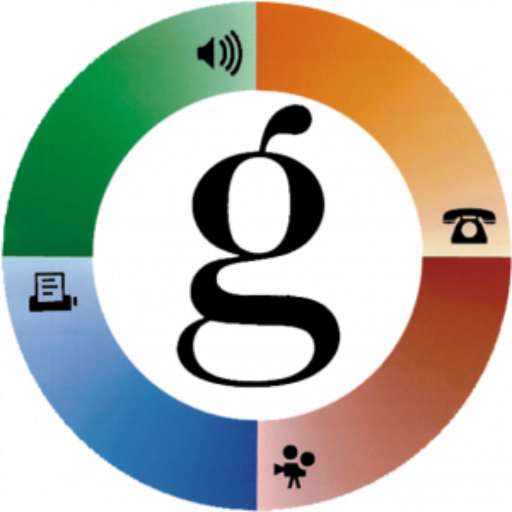Site visits offer participants the opportunity to learn about innovative technology applications and cutting-edge research and development projects in the greater Vancouver area. All site visit packages are half-day tours. The cost for each half-day tour is $35 per person, which covers the cost of transportation from Simon Fraser University’s Harbour Centre Campus to the sites and back.
March 26 – Site Visit # 1 – The bus will depart from SFU’s Harbour Centre campus at 8:30 am.
March 26 – Site Visit #2 – The bus will depart from SFU’s Harbour Centre campus at 1:30 pm.
March 29 – Site Visit #3 – The bus will depart from SFU’s Harbour Centre campus at 8:30 a.m.
Site Visit #1 – Innovative Labs at UBC, VGH and Emily Carr University
Stop 1 on this tour is the IDEA Lab (Innovation in Dementia Care and Aging) at the University of British Columbia where visitors will learn about 5 projects.
Project 1 – WhatMatters app is a digital intervention specifically created for individuals living with dementia in hospitals and long-term care facilities. This app enables family members to share personalized content such as photos, videos, music, and audio recordings, which staff can utilize to connect with patients and residents. Research is focused on refining the app’s functionality by analysing users experience, implementing interface improvements and assessing outcomes. https://idea.nursing.ubc.ca/2021/06/10/what-matters-apps/
Project 2 – 3D Projector
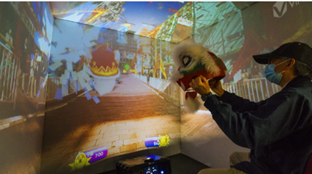
This project, co-developed with residents/patients living with dementia in hospitals and long-term care facilities, their family, and staff, includes activities like virtual Tai Chi and cultural scenes. The goal is to promote ethical, person-centred care and inform broader adoption of immersive tools in aging services.
Project 3 – AI Chatbot for People Living With Dementia (PLWD) in Long Term Care
This research is focused on developing a conversational AI chatbot designed to support older adults experiencing memory loss within long-term care settings. It involves close collaboration with residents, their families, staff, and CloudMind Software Inc. (The industry partner) to drive the effective implementation and evaluation of the AI solution.
Project 4 – Indigenous VR Storytelling
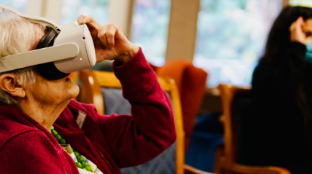
This innovative initiative, conducted in partnership with the Museum of Anthropology, uses VR technology to preserve and share Indigenous stories in an immersive format that enhances engagement for older adults, including those with dementia. https://idea.nursing.ubc.ca/2025/02/10/supporting-connections-through-vr-storytelling-in-acute-care-settings/
Project 5 – Aether Robot
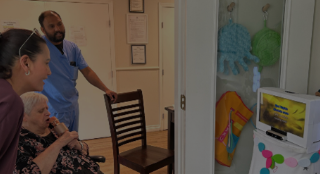
This project contributed to the development and evaluation of Aether, which features autonomous navigation, voice recognition, and entertainment capabilities. It ensures safety through environmental monitoring and engages socially with caregivers and residents, telling jokes, stories, and welcoming visitors using face and voice recognition. https://idea.nursing.ubc.ca/2023/01/06/aether-robot/
Stop #2 – TBD
Stop #3 – Health Design Lab Emily Carr University of Art and Design
This site visit will showcase projects focused on storytelling and creative approaches to engagement, including co-designing with older adults and people with dementia. Below are some examples.
- https://research.ecuad.ca/healthdesignlab/projects/who-cares/
- https://research.ecuad.ca/healthdesignlab/projects/perspectives-program/
- https://research.ecuad.ca/healthdesignlab/projects/collaborate-gather-share/
Site Visit #2 — BCIT and SFU Surrey
Stop #1 – Rehabilitation Engineering Design at BCIT’s MAKE+ Lab
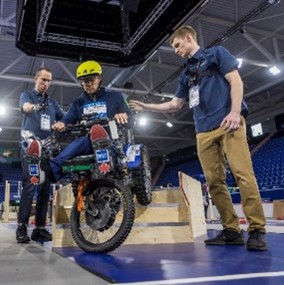
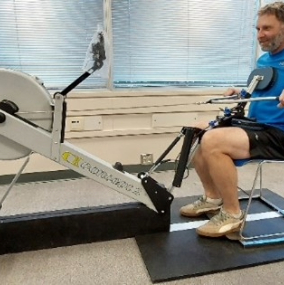
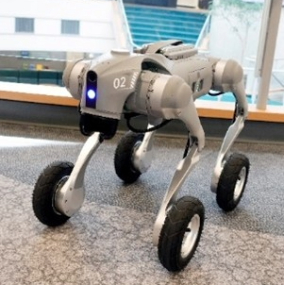
Tour Location:
Centre for Applied Research and Innovation (CARI) at BCIT
4355 Mathissi Place, Burnaby
Team Leaders: Drs. Yvette Jones and Jaimie Borisoff
Join them for an engaging tour of the British Columbia Institute of Technology’s Centre for Applied Research and Innovation (CARI), home to the MAKE+ Applied Research Group. With a mission of developing creative solutions for better lives, MAKE+ focuses on improving the daily living, work, and recreational experiences of older adults and people with disabilities through applied research and innovative design. Participants will experience four hands-on, technology-driven projects aimed at enhancing accessibility and mobility:
- Dr. Tong Louie Living Laboratory: A cutting-edge space for 3D Motion Capture, physiological monitoring and data collection supporting human-device interaction research.
- The BEAST (BCIT Extending Articulating wheelchair for Serious Terrains): Winner of the 2024 Cybathlon Gold Medal, this high-performance device is engineered to navigate and overcome complex real-world terrain.
- Adapted exercise machines – Featuring the aROW and aSKI for stable seated exercise, and the AAPLEwalk, an upright elliptical system offering fully supported walking exercise.
- Robotic dogs – early-stage research into robotic assistance animals designed to support mobility and daily living activities for older adults.
This tour is ideal for those interested in rehabilitation engineering, assistive technologies, and inclusive design in aging.
Stop # 2: TBA
Site Visit #3 – Healthy Inclusive Environments and Architecture
Stop #1- Seton Villa – 3755 McGill St, Burnaby, BC

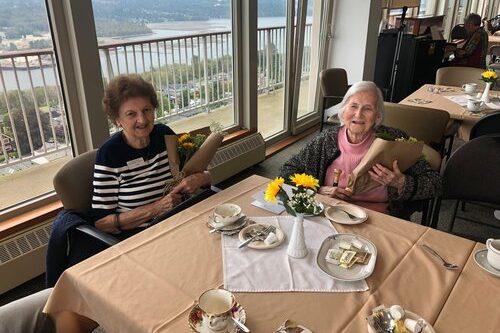
What goes on in a retirement centre? Come find out. Seton Villa invites you onsite for a behind-the-scenes look at how we’re redefining senior living in our 19-storey, non-profit community, home to 225 vibrant residents. Fresh off our 50th anniversary, we’re proud to share how we’ve reduced loneliness to just 5% through targeted strategies, resident-led Java Music groups, and a strong culture of connection. We also broke new ground by hiring a full-time Kinesiologist, boosting fitness participation and energy across the building, from aquafit to “Wimbledon Workouts.” Over 50% of residents now meet recommended movement goals, and they’re loving it. You’ll hear real stories, feel real connection, and see real movement in action. Plus, tour our evolving campus, including a $37M revitalization and a brand-new 48-suite accessible building with a community “main street.” Come see what’s possible when purpose, wellness, and innovation come together.
Stop #2- Dania – 4175 Norland Ave, Burnaby, BC
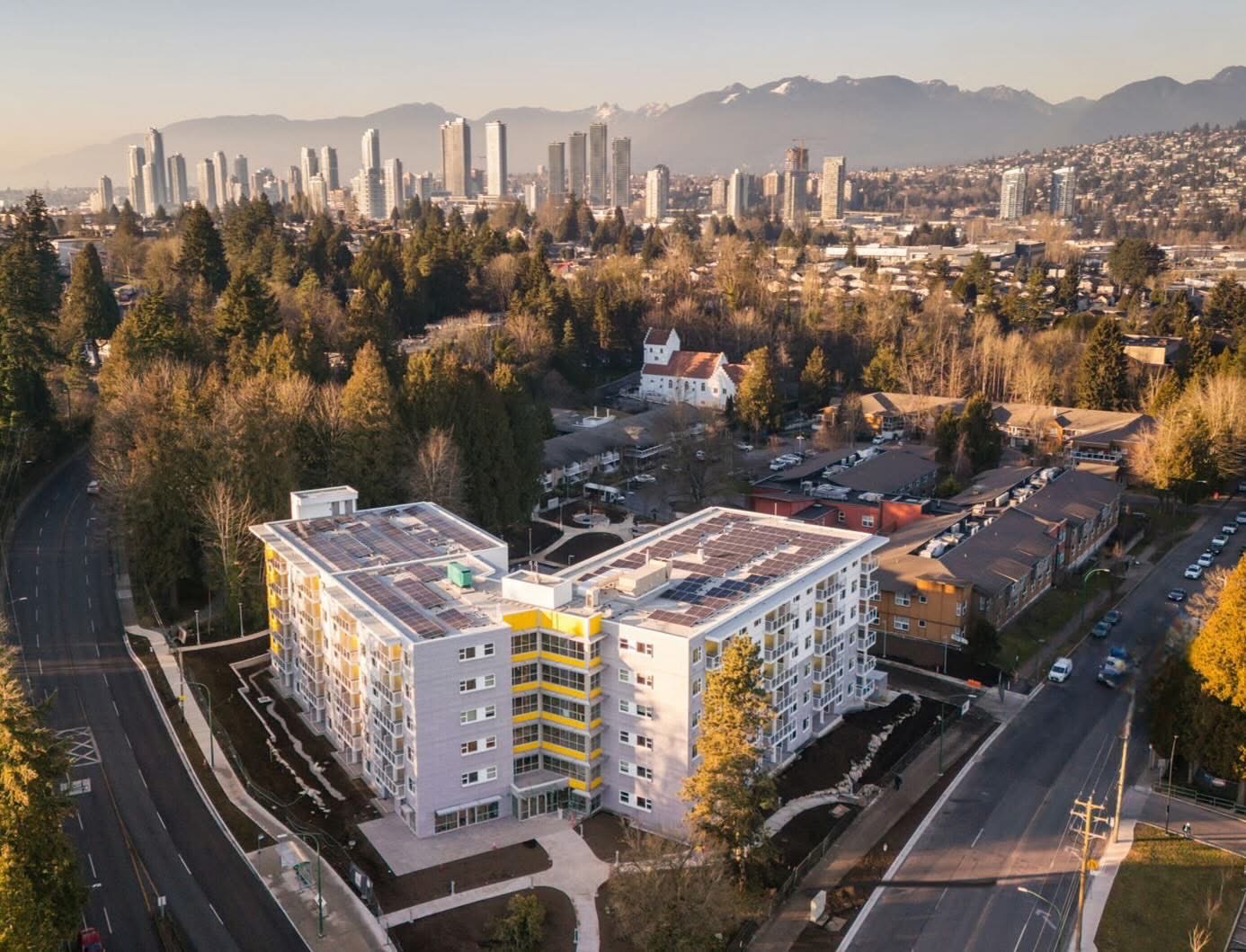
Dania Society invites you to discover a unique senior living community rooted in 80 years of Danish heritage and guided by values of Excellence, Compassion, Diversity, Respect, and Integrity. Our nonprofit “Campus of Care” spans 7 landscaped acres and offers 214 Independent Living suites, 40 Assisted Living suites, and 102 Residential Care beds. One of our buildings, Dania Home, features six neighbourhoods with 17 beds each and advanced point-of-care technology in every room, ensuring high-quality, complex care and helping us achieve zero COVID-19 fatalities during the pandemic. We are committed to quality assurance and innovation, recently developing a concept for a mobile app to enhance caregiver communication and care planning through language translation. This tool aims to reduce aggressive behaviours, support residents and families in understanding care plans, and could be potentially used in hospitals and home care settings. Currently at the proof-of-concept stage, the app’s further design and eventual deployment have the potential for more collaboration and evaluation beyond Dania.
